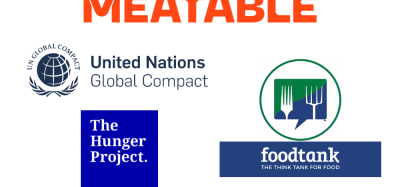Food fraud: how the right culture can ensure integrity and systemise trust
- Like
- Digg
- Del
- Tumblr
- VKontakte
- Buffer
- Love This
- Odnoklassniki
- Meneame
- Blogger
- Amazon
- Yahoo Mail
- Gmail
- AOL
- Newsvine
- HackerNews
- Evernote
- MySpace
- Mail.ru
- Viadeo
- Line
- Comments
- Yummly
- SMS
- Viber
- Telegram
- Subscribe
- Skype
- Facebook Messenger
- Kakao
- LiveJournal
- Yammer
- Edgar
- Fintel
- Mix
- Instapaper
- Copy Link
Posted: 13 June 2019 | Arun Chauhan | No comments yet
Arun Chauhan, Founder and Managing Director at Tenet Law, explains how leadership style within an organisation plays a part in preventing and mitigating the risk of food fraud.


Your business’s culture is its ‘DNA’. It represents the unique way it operates; ‘How we do things around here’. It’s what diff erentiates your business and defines its values. Leaders set the tone for this culture and, in this sense, leadership is the dynamic way that each organisation is led by either an individual or group (eg, board or management).
Dishonesty within any business, be it internal or external, can result from many factors. One factor that is often overlooked is leadership – not in the sense of governance but as a key dynamic impacting culture and therefore engagement. Engagement is key. Failing to instil the right culture can lead to heightened risk of employee disenchantment, which can present itself in many ways – from simple acts of ignorance through to dishonest activity. It is often cited that pressure initiates symptoms that lead to dishonest behaviour. Pressure can encourage employees to act dishonestly as they use it to rationalise their conduct. That is the traditional fraud triangle.1
However, in all sectors, we overlook how pressure is associated with fraud and is directly attributable to leadership.
The influence of leadership
Every leader wants to be the best and achieve their corporate objectives. Problems start when corporate objectives cascade down to the individual without an understanding of the challenges upon the individuals to meet those objectives. Self-protection can come into play and leaders often pass on the pressure to their teams, which may prompt them to act in a manner that invites risk to the business.
A leader increases the risk of bad behaviour in the following ways:
● Condoning an unethical approach
● Encouraging team members to cut corners
● Turning a blind eye to bending the rules to meet unrealistic targets
● Not recognising the pressure placed on employees due to absent leadership or too many demands.
Each of these can lead an employee to become disenchanted and act out of character. The cauldron of pressure created by leadership in the workplace is proven to infl uence good people to do bad things. Poor leadership can create a toxic environment, rich with stress, poorly-aligned performance incentives and everyday tolerance of wrong-doings. If organisations don’t strive for zero-tolerance of bad conduct, they allow for a maximum-tolerance for small wrongs.
There are three leadership types that actively make an otherwise conscientious culture prone to fraudulent behaviours: the autocratic leader, the metrics-driven leader (the clock-watcher) and the absent leader.2 Leadership style closely correlates with employee behaviour. When the culture created by a leader is disconnected from their team or the mission of an organisation, employees may well become disengaged – meaning they’ll only be coming to work for the money and certainly aren’t candidate whistle-blowers. This disengagement coupled with high-pressured, highly-conflicting working environments can lead to employees being unable to make morally sound decisions. All of us, when emotionally drained, are susceptible to poor decision making. Leaders can be guilty of creating an environment that influences good people to lose their way – unable to find ‘true north’ on their moral compass when drained, which results in bad conduct, or dishonesty. Our moral compass is not fixed. It can change path if the environment created by our leadership influences it in such a way.
Food fraud
From unintentional mislabelling of products3 to the nationwide horsemeat scandal4 and international honey laundering practice,5 food fraud is rife across the globe with few signs that it’s abating. Since bartering and trade began, fraud has been present. The food sector now comprises complex supply chains linking myriad suppliers, spread over several countries, each with different cultural norms that combine to create a more heightened risk profile than many other sectors.
This increased risk profile, coupled with the potentially devastating impact – both in terms of financial and reputational loss – can result in highly-esteemed food brands falling prey to the smallest of mistakes. The only safeguard against this is ensuring all of your fraud defences are working; starting with your team. People in an organisation protect against risk of fraud when they buy into their organisation’s standards and compliance processes.


The international honey laundering scandal shows that food fraud is rife across the globe
As profit margins in the food industry are typically much smaller than in other sectors, high performance targets can be difficult to achieve and sustain. Any financial loss incurred can be crippling to overall business performance and shareholder confidence. This means, when tackling financial crime – a key risk to the integrity of your supply chain – many food businesses can be primarily concerned with combatting fraud due to regulatory or financial sanctions, as opposed to being purely driven to combat financial crime itself. This is a question of being a grown-up company demonstrating corporate maturity.
It is often cited that pressure initiates symptoms that lead to dishonest behaviour.
In his Model of Maturity and Culture,6 David Jackman depicts how values-led businesses follow the spirit of the law, not just the letter – demonstrating corporate maturity by partnering with regulatory compliance bodies to ensure product integrity. However, those primarily fearing regulatory enforcement, will work only to meet the minimum standards, thus leading to a weaker corporate culture that views compliance as a cost to the business. Trust is the by-product of value-led businesses (and their leadership). High trust typically demonstrates higher compliance standards, which, in the food sector, ultimately protects the consumer and builds brand collateral. If you’re placing profit ahead of all other business factors – including your team – it can promote a culture at high risk of demotivation and disenchantment.
How well do you know your supply chain?
Only science can give you full confidence in the ingredients of each product in your supply chain. Technology is now key to food integrity – be it DNA or other tests. For example, if you’re buying fresh fish from a fishmonger, you can be confident you’re purchasing genuine, fresh fish. Frozen blocks of fish bring uncertainty to the fish’s authenticity; a factor that’s even more in doubt when buying fish paste or powder. If your supply chain places profit ahead of integrity (albeit without realising it) or is disenfranchised by the way they’re treated, you may fall victim to ‘tricks of the trade’ practices.
Food brands flourish or wither on the strength of their leadership
Leaders affect the financial and other commercial pressures on suppliers, which can lead to product quality and brand reputation being compromised. DNA testing is the only sure path to knowing with certainty that ingredients are genuine. However, this takes time and can be costly as well as indicate mistrust amongst your supply chain. In turn, this can project poor leadership, profile a negative corporate culture and prompt disenchantment – all factors that contribute to a high-risk environment for fraud (the act you were seeking to prevent in the first instance). Instead, preventing fraud is about systemising trust and placing integrity first.
Ensuring integrity in your supply chain
“What’s the worst that could happen if we fall victim to fraud?” is the best question to address when attempting to identify the risk of fraud and mitigate it through leadership, culture and tackling disenchantment. These principles, when combined, are about creating a culture with high levels of trust and integrity and zero tolerance for dishonest behaviour. This, in turn, will reduce the risk of fraud within the food supply chain. A positive culture such as this will project throughout the business.
A global issue
Food fraud is a global issue, as highlighted by the honey laundering scandal.7 Your food supply chain is global – across several different jurisdictions with different regulatory standards. As a nation, the UK has relatively high food standards with the food supply chain being led by retailers. In Europe, the market is led by manufacturers. The Italian agricultural market is worth an estimated €7 billion8 with a significant portion controlled by organised crime groups. Supply chains call for complete transparency to assure their global integrity across all jurisdictions – regardless of various regulatory standards. To achieve this, it’s vital to evaluate the culture of your whole supply chain, determining how it acts at each stage. As a result, you’ll be able to ascertain if your supply chain is:
- Delivering a product of consistent world‑class quality
- Meeting minimum regulatory standards to ensure compliance while maximising profit margins in each jurisdiction
- Placing profit ahead of all other factors – eg, cutting corners to improve margins with little regard for moral or legal consequences.
Protecting your business: a summary
Food brands flourish or wither on the strength of their leadership and this maxim is particularly pertinent to their susceptibility to fraud. Leaders set the moral compass and the tone, which guides what their teams believe and how they behave. Responsibility, commitment, honesty, and loyalty are just words until a leader shows they’re real in their deeds when faced with a judgment call.
The first stage of preventing fraud is to think about it differently – see your company culture from each employee’s point-of-view – is it positive? Or does something need to change? Our people are our eyes and ears; engage with them and they will engage with you. This ethos is at the heart of businesses that combat fraud more effectively than others. Preventing and mitigating the risk of food fraud is all about creating a culture of information sharing and whistle-blowing throughout the entire industry.
SIX KEY PRINCIPLES
Chris Elliott, School of Biological Sciences professor at Queen’s University Belfast, cites six principles guiding high-integrity food supply chains:9
- Safe food: Improved education and innovative food packaging can reduce levels of food-borne illnesses.
- Authentic food: There are myriad opportunities for food and drink fraud within the global food supply chain. Ensuring authenticity will prevent loss of trust.
- Nutritious food: Detailing micro-nutritional content of food.
- Sustainable systems: The UK has a pivotal role to play in delivering sustainable agriculture by increasing crop yields without impacting nutritional content, reducing food waste through better storage.
- Highest ethical standards: Continuing to lift standards.
- Respect: For both the environment and people in the food industry.
About the author
ARUN CHAUHAN is the Founder of Tenet Compliance & Litigation – a specialist law firm helping clients prevent and reduce the impact of fraud through better education and the cost-effective pursuit of claims. Arun is the Deputy Chair of the charity, the Fraud Advisory Panel and regular contributor to BBC Watchdog.
References
- www.brumellgroup.com/news/ the-fraud-triangle-theory
- https://www.hrmagazine. co.uk/article-details/how-thewrong- company-culture-fost ers-employee-fraud
- www.stericycleexpertsolutions.com/product-mislabeling-onthe-rise
- www.theguardian.com/uk/horsemeat-scandal
- https://www. livescience.com/28039-honey-laundering. html
- https://david-jackman.co.uk/what-we-do/corporate-maturity/
- www.livescience.com/28039-honey-laundering.html
- https://tradingeconomics.com/italy/gdp-from-agriculture
- www.foodmanufacture.co.uk/ Article/2018/01/18/Six-princip les-to-reshape-the-food-supplysystem- Professor-Elliott
Issue
Related topics
Food Fraud, Food Safety, Food Security, Quality analysis & quality control (QA/QC), Regulation & Legislation, Supply chain









